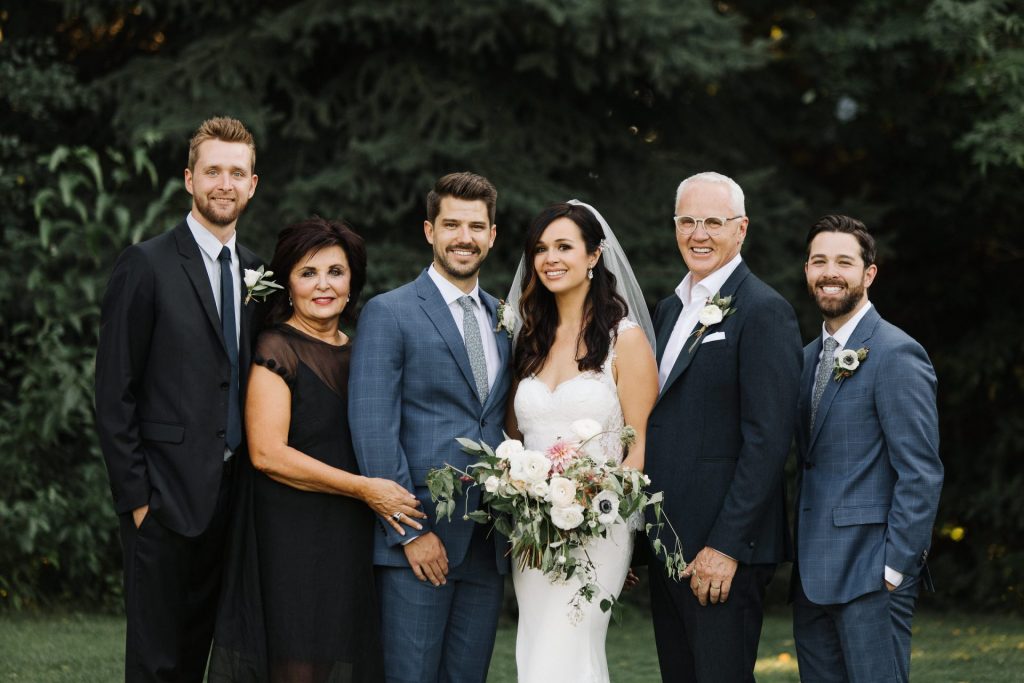
Every family has a story; every story has a family…
They say that every story is told differently, depending on the audience. Here is my story. I come from a large, extended, matriarchal family of grandparents, aunts, uncles, and many cousins who have enriched my life within a network of supportive, nurturing relationships. In my own family of origin, I am the eldest of four children and both of my parents were health care professionals. Being connected to family, valuing family, and learning from strong women is an integral theme of my story.
I was first drawn to the idea of focusing on families in health care in the late 1970’s when I joined the University of Calgary, Faculty of Nursing with a new master’s degree in Mental Health Nursing and learned about Family Systems theory from Dr. Karl Tomm. Karl served as a consultant to the Faculty of Nursing from the Family Therapy Program–a clinical practice and education unit that he developed within the Faculty of Medicine. Under Karl’s leadership, Calgary was a hotbed of early innovation in systemic family interventions with frequent visits from the Milan Team, Michael White, David Epston, Humberto Maturana, and many other influential family clinicians and theoreticians.
I had the pleasure of meeting Dr. Lorraine Wright, a brilliant clinician and teacher, at one of these workshops and was delighted to discover that she was a doctorally-prepared nurse. I heartily endorsed her recruitment to the Faculty of Nursing in 1980 as our new Master of Nursing program in advanced nursing practice began. I later focused my own doctoral research on couples experiencing illness and interviewed both spouses together across several months through their diagnosis and treatment of breast disease. Thus began my shift from nursing only the individual to nursing the “family”.
In 1986, I was invited by Dr. Lorraine Wright and Dr. Wendy Watson Nelson to join them in a unique outpatient clinic at the Faculty of Nursing named the Family Nursing Unit (Bell, 2008). And the rest of the story, as they say, is history! Practice with families informed our teaching, research, and scholarship. Together, as a team, we worked with families experiencing illness, supervised graduate student practice with families, taught family nursing theory, conducted research, and created new knowledge about nursing practice with families. Lorraine Wright coined this clinical scholarship, “Family Systems Nursing” and urged our team to “let the work speak for itself”. Our learning from families has informed the development of several practice models for family-focused care including the Calgary Family Assessment and Intervention Models (Wright & Leahey, 1984, 1994, 2000, 2005, 2009, 2013); the Illness Beliefs Model (Wright & Bell, 2009; Wright, Watson, & Bell, 1996); and the Trinity Model (Wright, 2017).
I am also a daughter, sister, wife, and mother who has personally experienced illness suffering in my own family. I am the daughter of an ill and dying parent who often felt “invisible” to health care providers while holding vigil beside my parent’s hospital bed. I am a mother who was criticized for advocating for my son’s care during his brief hospitalization. I am the wife of an ill husband who was rarely included in discussions about his diagnosis, treatment, or prognosis. I am the heartbroken mother of a precious son who died from an addiction, secondary to traumatic brain injury, despite years of treatment and advocacy for my son’s healing. Illness, I have come to understand, is truly a family affair! Thankfully, I have also experienced excellent family-focused care offered to me by health care professionals, but this has been an exception rather than the rule. My life’s work is focused on building capacity in nurses and other health care professionals to care for families with competence, confidence, and compassion that “softens” illness suffering.
This is my story.
Janice M. Bell, RN, PhD
